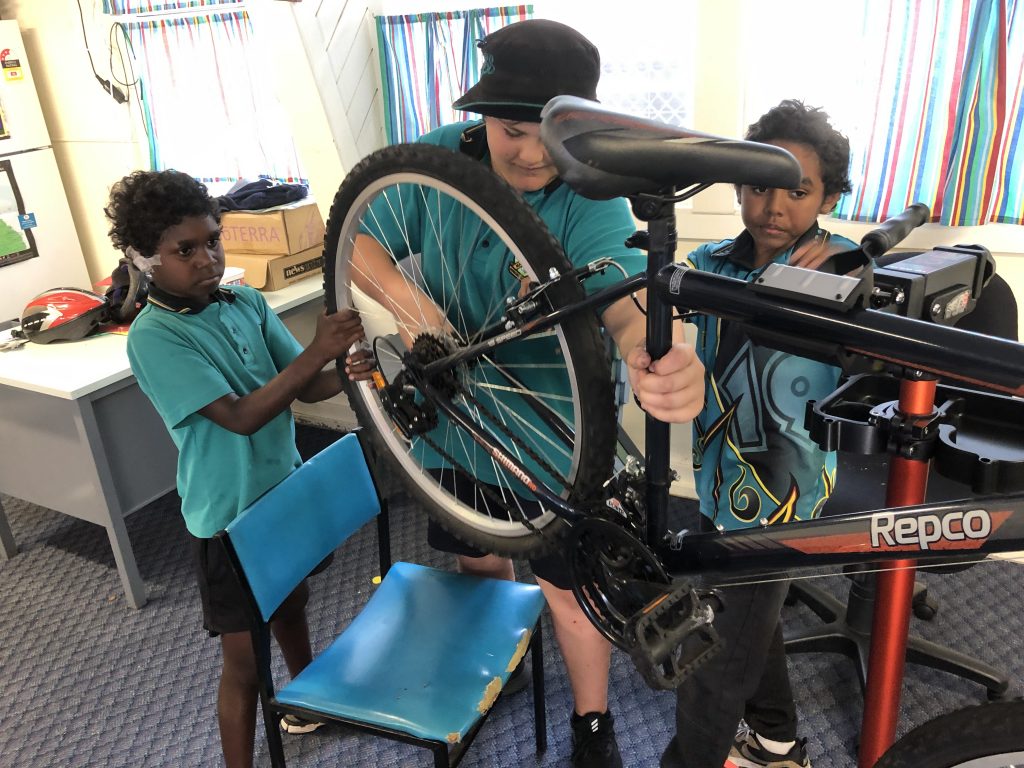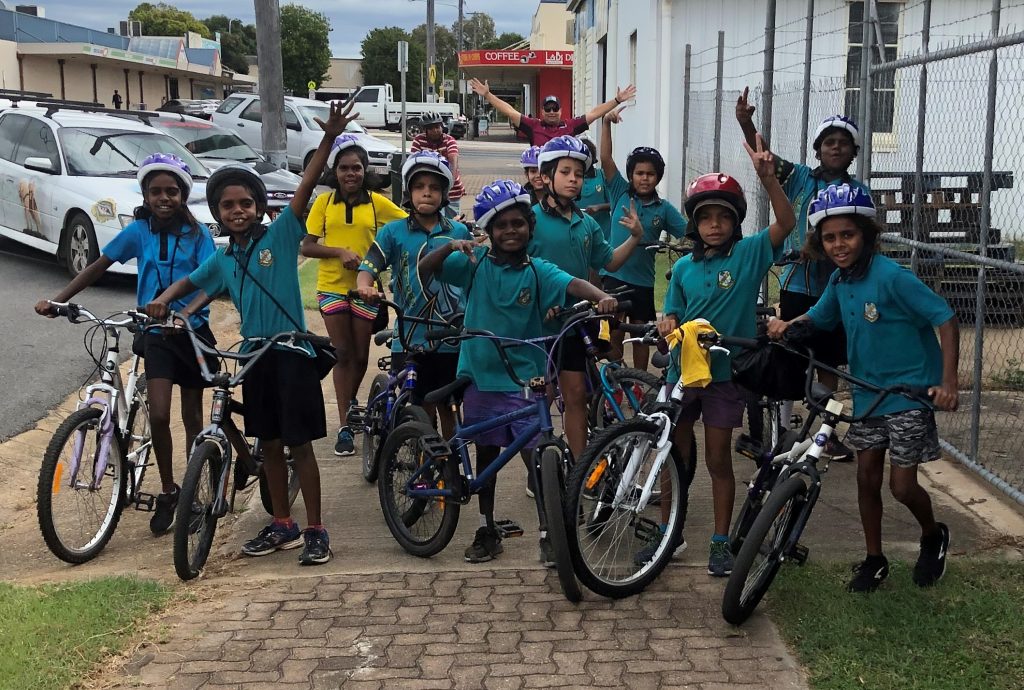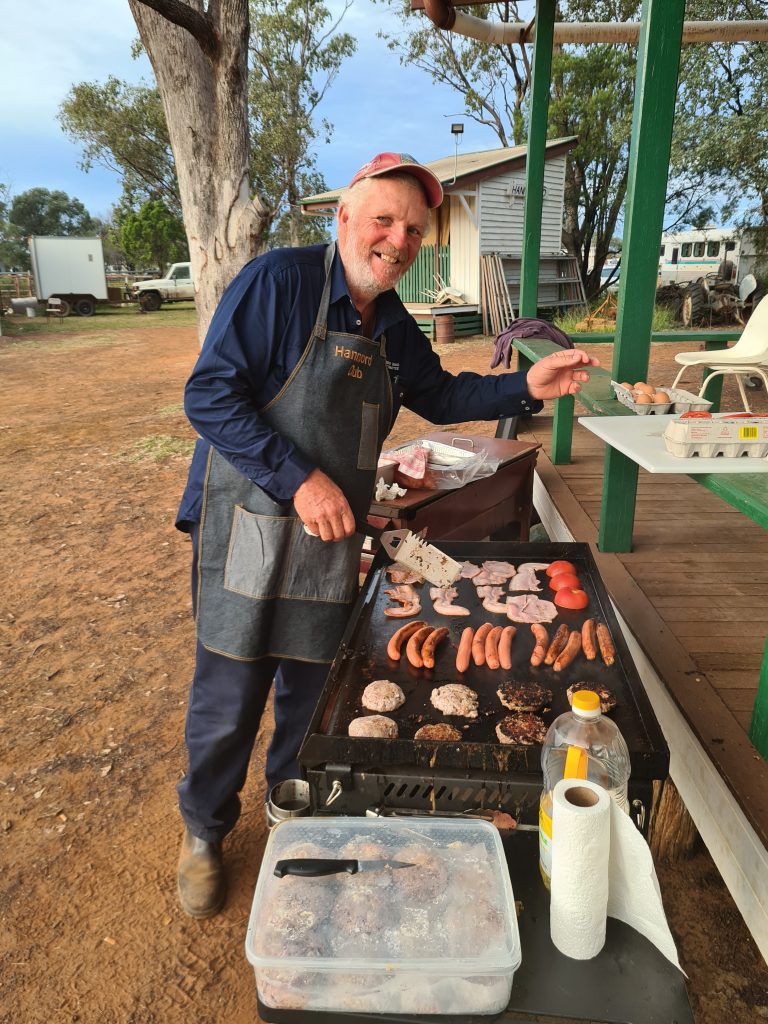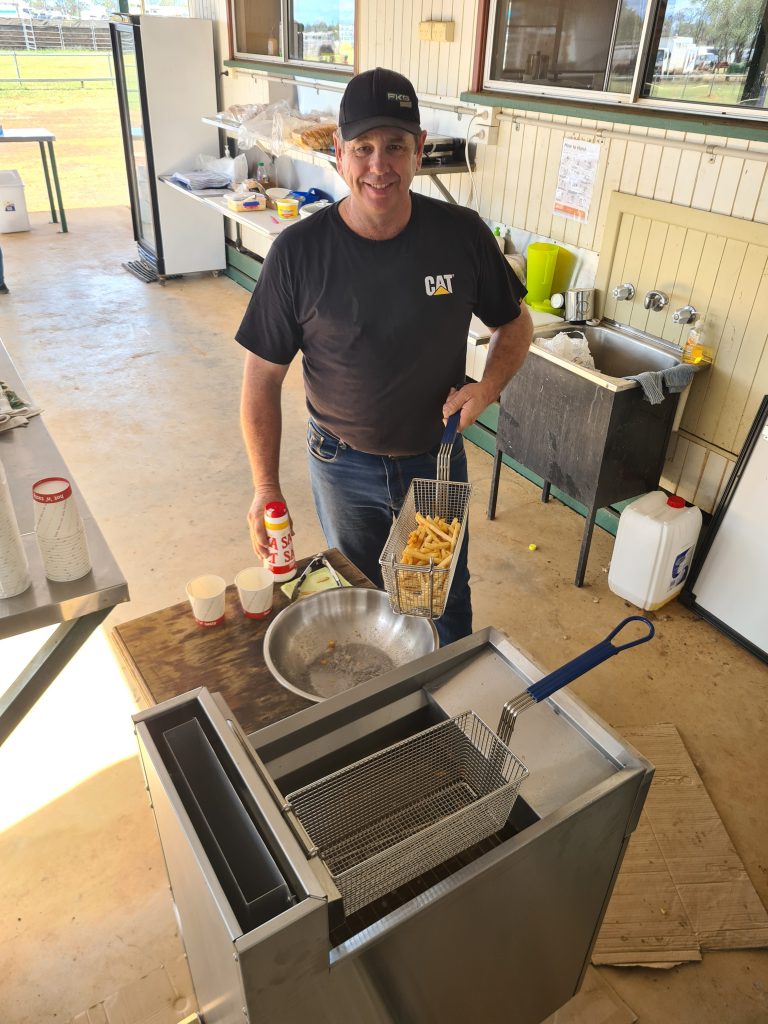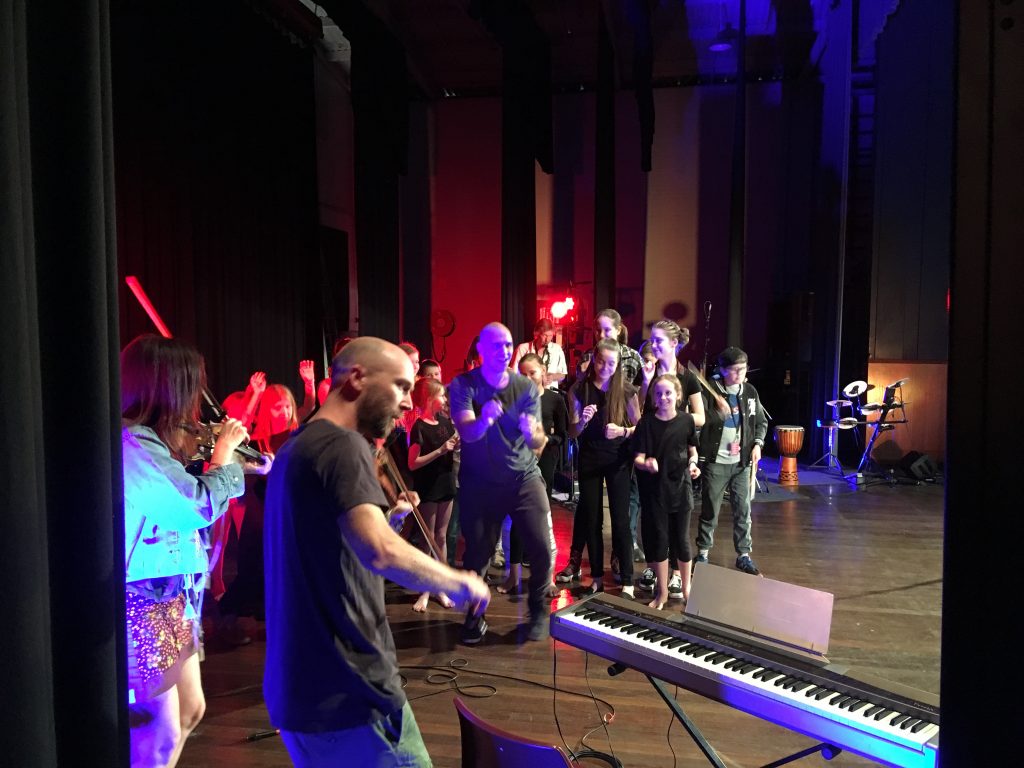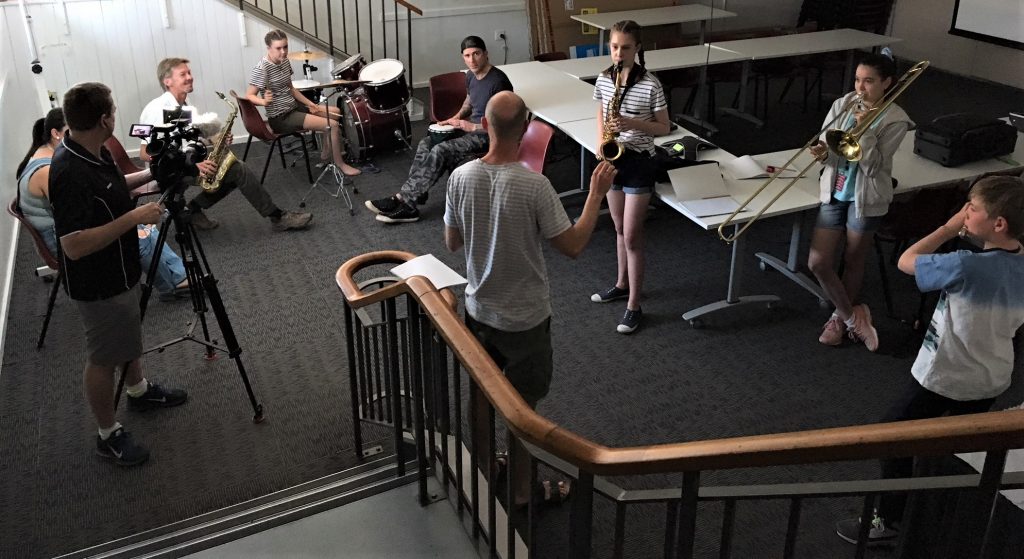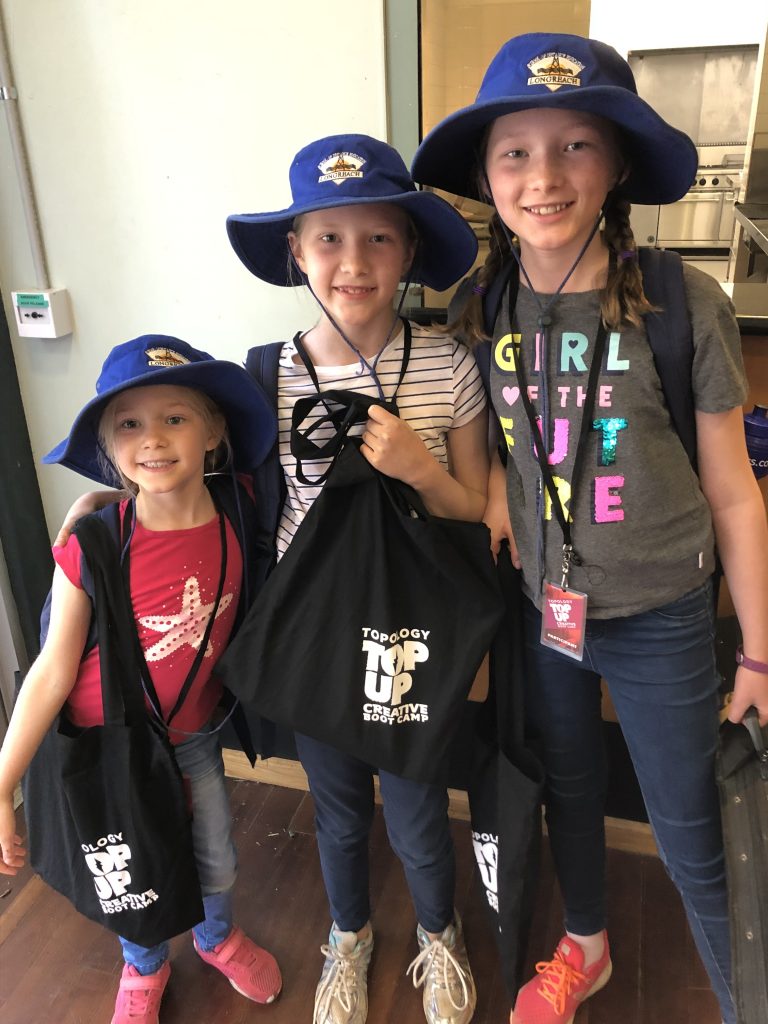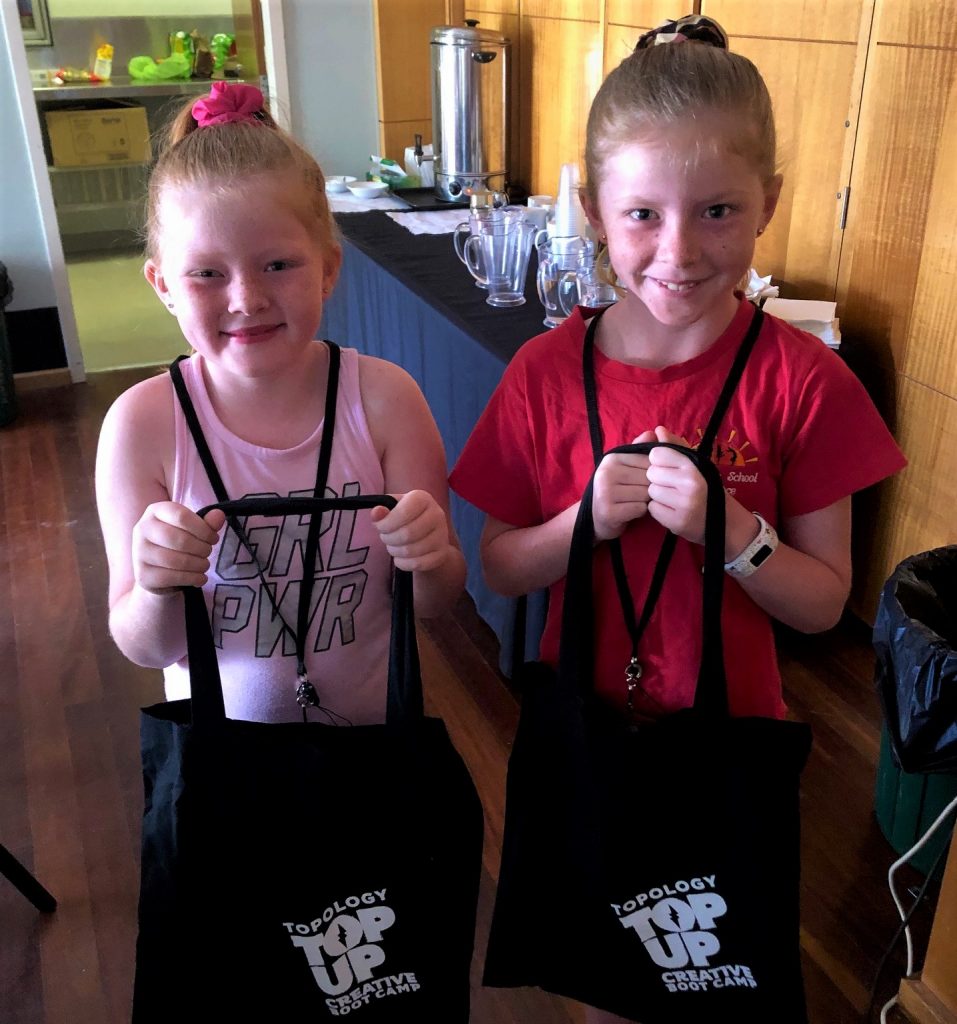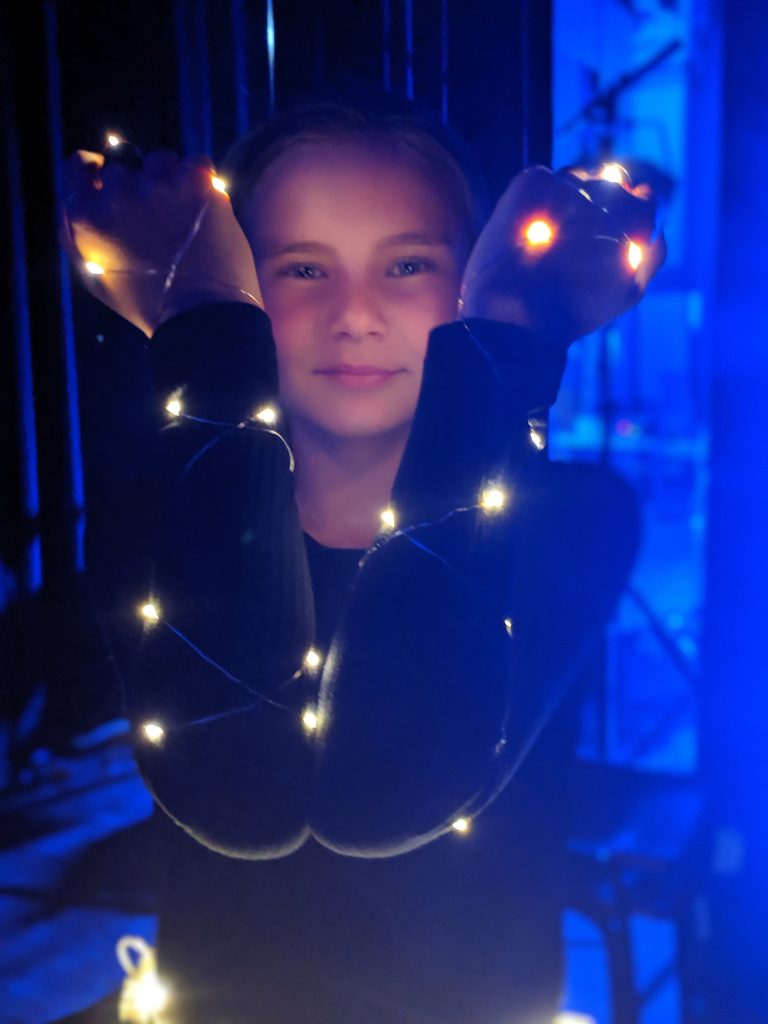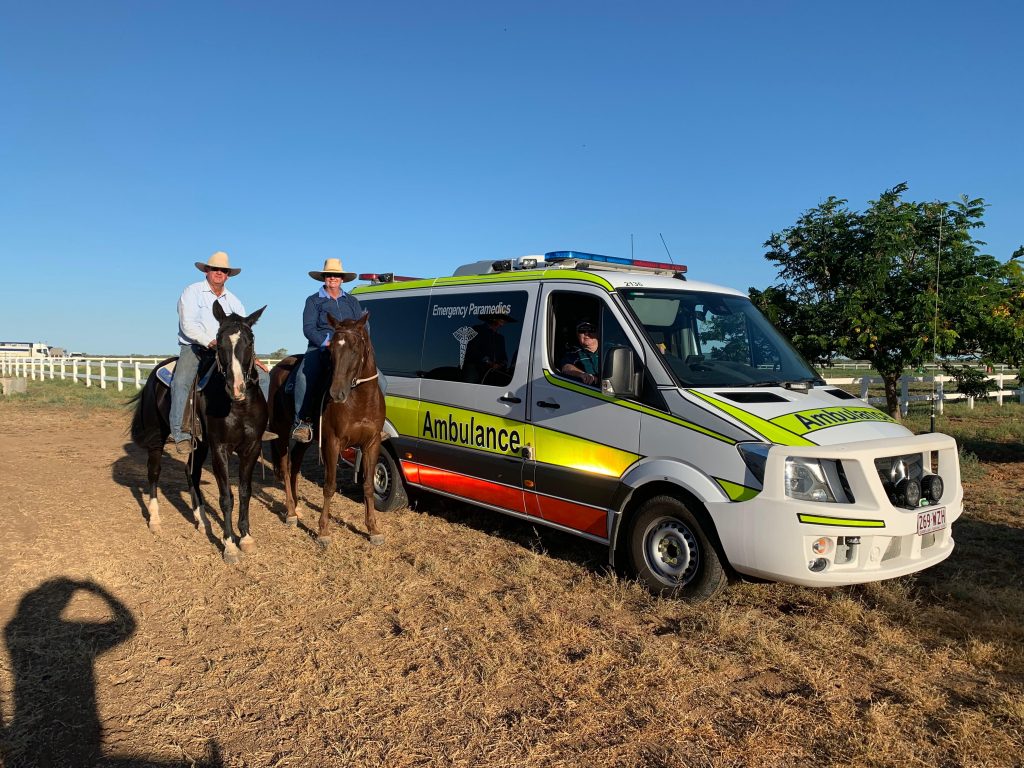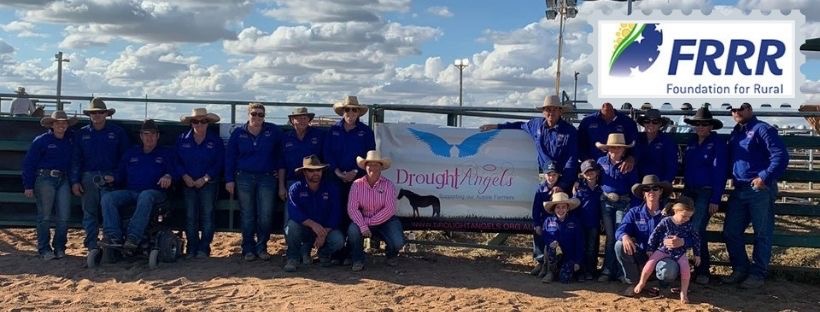Foundation for Rural & Regional Renewal (FRRR)
In many rural communities, non-denominational school chaplains promote strong community connection, participation opportunities and engagement to reduce isolation and encourage better physical and mental health. While these positions are generally funded through local donations, in recent years there simply hasn’t been the money to fund them locally due to drought and, more recently, reduced tourism from COVID-19 restrictions.
Through FRRR’s Tackling Tough Times Together grant program, Scripture Union Queensland received $131,490 to support chaplaincy positions at Ravenswood State School, Charter Towers Central State School and Mareeba State School until June 2022. The grant was made possible through generous donations from the Sidney Myer Fund and the Tim Fairfax Family Foundation.
This funding ensures all programs and activities coordinated by the chaplains, including one-on-one pastoral care conversations and classroom support, are free for all children, young people, families and school staff. These activities help to reduce isolation and increase wellbeing and community participation in communities suffering from the long-term effects of drought.
Since funds were awarded in 2019, the schools have been able to implement change and growth within their chaplaincy programs. At Ravenswood State School, chaplain Anne – a much loved member of the community – was finally able to retire at 83 years old. Her position has been filled by a long term local Charters Towers resident, who works two days a week.
The chaplain at Charter Towers has been able to increase her support to two days a week and is seeing a positive response to the ‘Girls with a Purpose Resilience’ program. Twelve students completed the program in 2019 and there was general consensus among the participants that it was a special time engaging with facilitators and peers. After the COVID-19 school closure in 2020, all girls in grade 6 are now taking part in the program.
A particular highlight for the Mareeba State School has been the implementation of the Bike-Bus program to encourage regular physical activity and increase school attendance and social and community engagement. Since being established in mid-2019, the program has engaged 30 students, as well as parents, grandparents, siblings, teachers and police. It also led to the creation of the Bike Repair Club – an alternative for those who enjoy hands on learning, with all students becoming much more engaged in their education.
The principal of the Mareeba State School, Mandy Whybird, noted the program’s positive impact.
“Our school chaplain provides an invaluable source of support for the students at Mareeba State School. Aside from running friendship groups, supporting children in classes and running lunchtime activities for children who may find the playground challenging, our chaplain also assists in providing breakfasts for children in need and working with children who may have experienced loss or trauma.
“The chaplain also assists to support staff well-being. When our school was shaken by the loss of a teacher last year, our Chaplain was integral to the recovery process for staff,” Ms Whybird said.
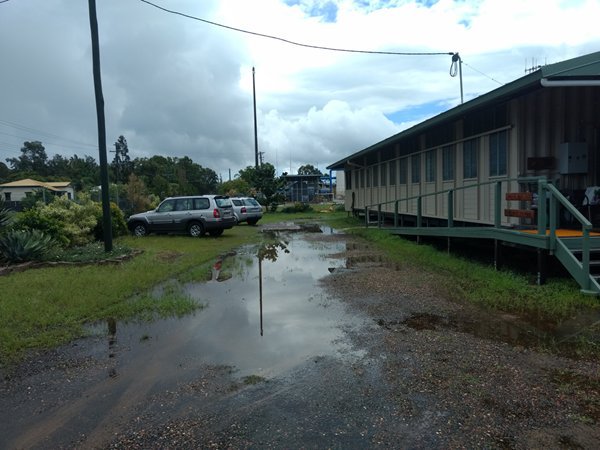
The resolution of issues causing frequent flooding of the carpark for the Burrum District Community’s Men’s Shed in Howard, QLD, has enabled more seniors to have safe access to opportunities to learn new skills with like-minded community members.
The carpark was flooding constantly due to weather issues and stormwater runoff, making access to steps and a ramp difficult for senior members, meaning some were not able to visit the shed.
A $2,200 FRRR Strengthening Rural Communities grant funded drainage and an all-weather carpark. Members also contributed by pitching in to clean up weeds – a project that need to be repeated when the project was stalled due to COVID-19 closures of the facility.
Burrum District Community Men’s Shed President Mark Wake said the facility provides a safe, friendly and healing environment with the emphasis on men’s health and encouraging social inclusion. Members can work on meaningful projects at their own pace, in their own time and in the company of others.
“The shed provides a friendly, relaxing environment that encourages men and assists with social isolation. It also provides support in times of bereavement, ill health, redundancy and other life changing events,” he said.
“The success of this project will see our shed becoming a welcoming environment in any weather as a drop-in centre for lonely, isolated men in the community,” Mr Wake said.
Among the improvements are access to the main shed during inclement weather, wheelchair access to the ramp and access to the metal work shed. An additional benefit was an increase in usable off-street parking leading to an increase in membership and community members inquiring about other services such as woodwork lessons.
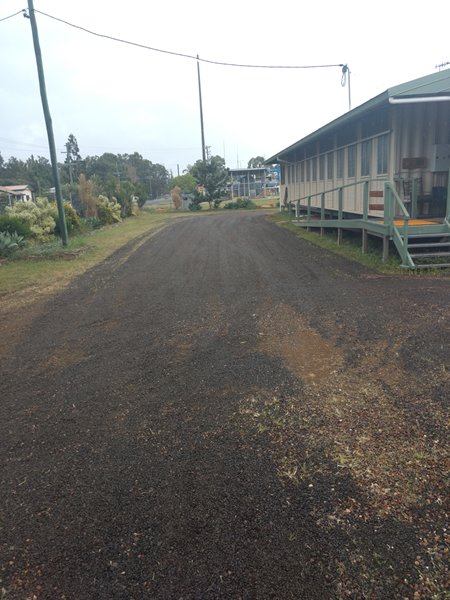
Much needed boost for 17 initiatives in affected NSW and QLD rural communities
FRRR, in partnership with Suncorp Group, has awarded $200,000 in grants to 17 community groups and local not-for-profits in rural areas impacted by the March 2021 floods and storms for initiatives that will support their recovery from the disaster.
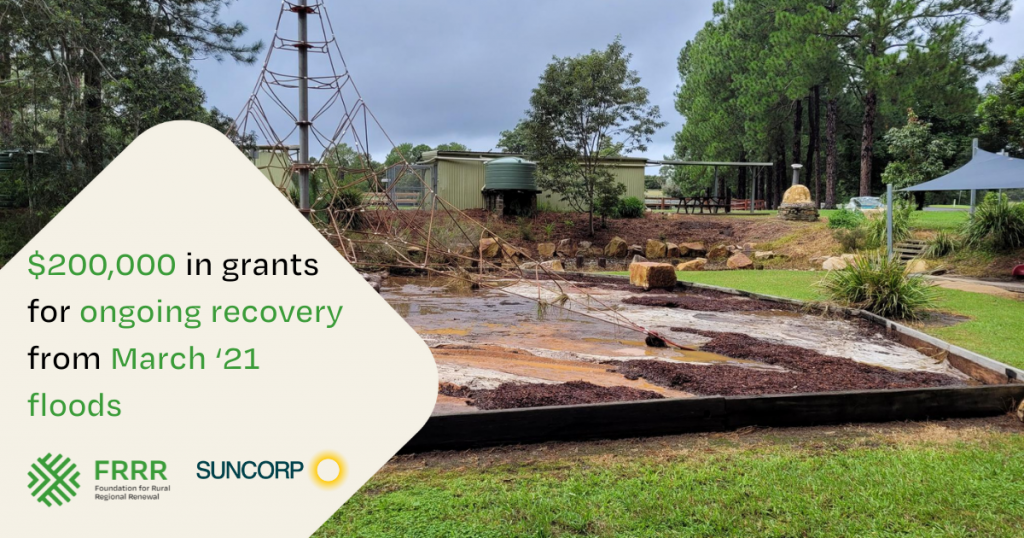
Funded through the Rebuilding Futures program, grants awarded range from $1,573 to $15,000. This funding will help with projects such as restoring damaged infrastructure, improving buildings and maintaining equipment needed for future disaster events, developing local disaster-response knowledge and skills, and providing access to services that foster recovery.
These grants are the first to come from Suncorp Group’s $1 million pledge to FRRR to support rural Australian communities impacted by, or vulnerable to, significant natural disasters.
Natalie Egleton, CEO of FRRR, said the grant recipients have showed a sense of resolve and strength when it comes to rebuilding.
“Recovery is not a quick process – not every community is going to have the capacity to take the same steps at the same time. Despite this, and the challenges of COVID-19 and volunteer fatigue, we’ve been genuinely impressed by the drive of local groups to actively seek support and funding to help their communities recover from the floods. It’s this kind of resilient spirit and motivation that will see these communities thrive once again.
“More than 50 percent of the applications we received for this round were for infrastructure and equipment, which shows not only the extent of the physical damage from the flooding, but also the long-term approach that these organisations are taking to the rebuilding of their communities,” said Ms Egleton.
Suncorp Group CEO, Steve Johnston, said these grants will enable recipients to overcome challenges and take control of their futures.
“The recipients of these grants are determined to make sure their communities recover and bounce back from the March 2021 floods. Natural disasters can turn people’s lives upside down, but the challenge has become even greater with the added pressure of the pandemic.
“Our remote, rural and regional communities know how to come together and work to rebuild their own futures. That’s why grant programs like these, that champion community-led recovery, are so crucial,” said Mr Johnston.
Among the 17 projects funded this round are:
- Bumbalong Valley Progress Association, NSW – Bumbalong Emu Project – $12,490 – Boost community connection and support the conservation of the local emu population by replacing infrastructure damaged during the March 2021 floods.
- Hawkesbury City Council, NSW – Hawkesbury Community Tech Connect – $14,836 – Enhance access to internet and mobile phone coverage with the creation of community technology hubs across the Hawkesbury region reducing isolation and supporting disaster recovery activities.
- Weemelah Hall, NSW – Beautification and Infrastructure Upgrade Project – $13,358 – Enhance community spaces with the installation of a BBQ for community use and beautification of the Weemelah Hall.
- Rathdowney and District Memorial Grounds Association Incorporated, QLD – Repair Rain-damaged Equestrian Arena and Make it Flood-resistant – $15,000 – Upgrade community infrastructure to mitigate the impacts of future flood events on the Rathdowney Memorial Ground.
More information on the Suncorp Rebuilding Futures grant program is available here.
The full list of grant recipients and their projects are below.
| Organisation | Project | Location | Grant | |||
|---|---|---|---|---|---|---|
| NEW SOUTH WALES | ||||||
| Bermagui Area Chamber of Commerce & Tourism Inc | A Positive Future Grow the organisations capacity to support the community with the provision of a portable projector and screen to enhance the delivery of community activities and events. | Bermagui | $2,584 | |||
| Bumbalong Valley Progress Association | Bumbalong Emu Project Boost community connection and support the conservation of the local emu population by replacing infrastructure damaged during the March 2021 floods. | Bumbalong | $12,490 | |||
| Hawkesbury City Council | Hawkesbury Community Tech Connect Enhance access to internet and mobile phone coverage with the creation of community technology hubs across the Hawkesbury region reducing isolation and supporting disaster recovery activities. | Bilpin, Colo & St Albans | $14,836 | |||
| Huskisson Public School Parents and Citizens Association | Huskisson Public School Community Canteen Boost community resilience and connection with upgrades at the Huskisson School canteen, providing appropriate cooking facilities for the community to cook, prepare and share meals. | Huskisson | $10,000 | |||
| Kempsey Singers Incorporated | Kempsey's Bandbox Theatre Costume Conservation Project Boost organisational capacity by repairing and mitigating future flood impacts at the Bandbox theatre and replace a portion of costumes damaged by the March 2021 floods. | Kempsey | $5,000 | |||
| Kendall Men's Shed | Noise Level Reduction Boost the service offerings at the Kendall Men's Shed with noise reducing machinery encouraging community participation and connection. | Kendall | $1,573 | |||
| Make a Difference PMQ Incorporated | MAD SHED Boost the organisations capacity to support their community, particularly through recovery with the provision of a shed to house essential equipment and machinery. | Port Macquarie | $15,000 | |||
| Mission Australia | The Common Approach - A Whole of Community Response to Child and Youth Wellbeing Grow community connection and wellbeing by providing activities through "The Common Approach" as a whole of community response to child and youth wellbeing across the Mid Coast region. | Taree | $10,811 | |||
| Unkya Reserve Committee of Management Nambucca Valley Council | Stay and Play - Unkya Reserve Playground Flood-Resilient Upgrade Boost access to family oriented community spaces with the repair of stairs and the installation of picnic table, bench and shade at the Unkya Reserve. | Eungai Creek | $15,000 | |||
| Quambone Resources Committee Inc | Quambone Memorial Hall - Final Touches Boost community connection by providing enhancements to the Quambone Memorial Hall, ensuring access to a comfortably appointed community facility for all to enjoy. | Quambone | $12,500 | |||
| River Cares Incorporated | To Improve Emergency Preparedness and Resilience by Developing a Community Emergency Plan Support emergency preparedness for Spencer and surrounding areas with the development of the Spencer Community Emergency Response Plan. | Spencer | $14,832 | |||
| UCA - Lifeline North Coast (NSW) | Psychological First Aid Workers - First Response Volunteers Strengthen community members mental health and wellbeing and assist in the training of community volunteer in Mental Health First Aid to support local recovery and resilience building. | Coffs Harbour | $14,800 | |||
| Upper Macleay Pre-School Incorporated | Tranquil and Safe - Upper Macleay Preschool Flood Recovery Initiative Support flooding preparedness by enhancing the Upper Macleay Preschool with repairs to flood damaged infrastructure and better preparing for future flooding events. | Willawarrin | $12,487 | |||
| Weemelah Hall | Beautification and Infrastructure Upgrade Project Enhance community spaces with the installation of a BBQ for community use and beautification of the Weemalah Hall. | Weemelah | $13,358 | |||
| Young Men's Christian Association of Sydney | The Y NSW CoastTeen Project - Empowering Peer-to-Peer Mental Health Support for Young People Living on the Central Coast Support community wellbeing with the delivery on the Youth Mental Health Peer Support program in the NSW Central Coast region. | Lake Haven | $14,729 | |||
| QUEENSLAND | ||||||
| Rathdowney and District Memorial Grounds Association Incorporated | Repair Rain-Damaged Equestrian Arena and Make it Flood Resistant Support the mitigation of impacts of future flood events on the Rathdowney Memorial Grounds by repairing, leveling and compacting the sand arena damaged during the March 2021 floods. | Rathdowney | $15,000 | |||
| Tamborine Mountain A H & I Society Inc | Replacement of Safety Rails on Access Ramp Increase accessibility to the Tamborine Mountains Showgrounds Pavilion by replacing the handrails and the front of the pavilion. | Tamborine Mountain | $15,000 | |||
Baranggum Country
The small rural town of Hannaford on the Western Downs in Queensland is battling what would seem to be an endless drought. With a town of just 120 people consisting mostly of primary producers, they have been heavily impacted by an ongoing lack of rain.
Cue the vibrant and dedicated Hannaford Club Inc – a community club founded in 1946, originally to maintain the Hannaford Memorial Hall in honour of the fallen.
These days though, this Club does far more than that. With its dedicated volunteers and committee members, this proud community organisation hosts and runs countless fundraisers both for the town and further afield. From the Hannaford Tennis competition to the Dalby Christian Youth Camp, the seemingly tireless fundraising and support efforts of this Club have, over the years, proven integral to the town’s survival – not just proving their resilience, but also showcasing their indelible ability to prosper.
A big part of the Hannaford Club’s fundraising efforts involve catering for all these events, which often draw crowds in the hundreds. Unfortunately, outdated and slow catering equipment was increasing volunteer workloads, as well as service time for getting food to patrons. The Club identified that an upgrade was sorely needed.
With a grant from FRRR’s Strengthening Rural Communities program, funded by donor’s Dr George Jacobs and Dr Janice Hirshorn, the Club has been successful in obtaining new equipment.
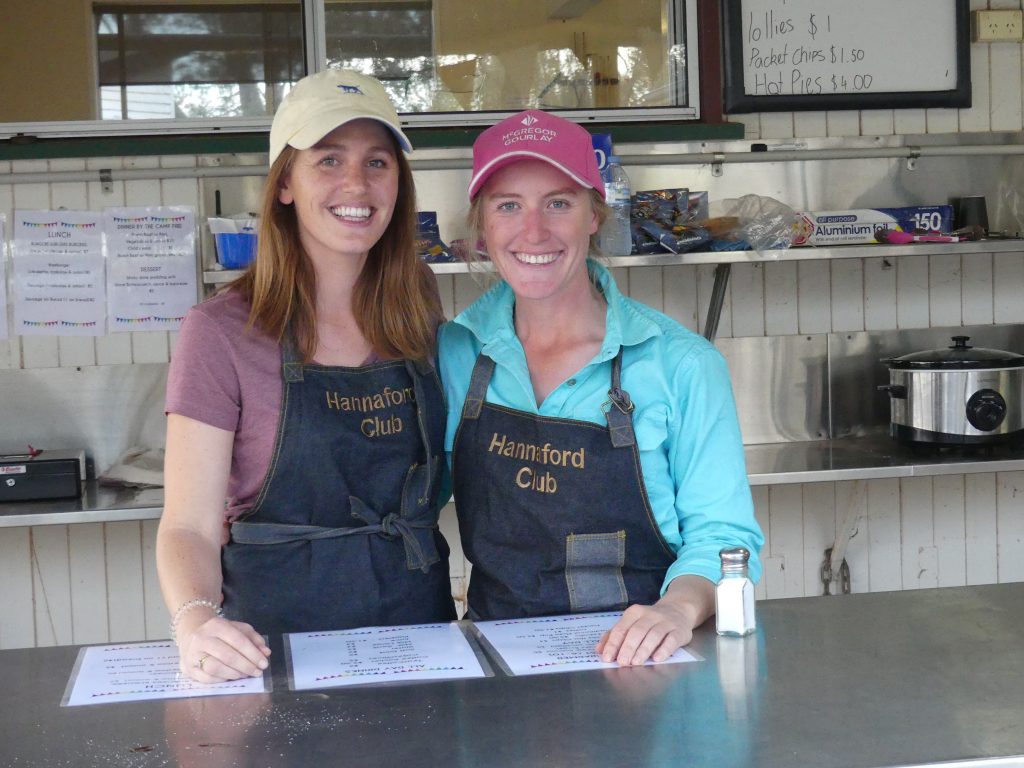
The funds were used to purchase a high-volume, gas-operated deep oil fryer, an ambient cake display cabinet, and a high-volume gas-operated BBQ. With the ever-increasing patronage at their events, this improved equipment will enable the Club to continue to support not just events hosted by them, but it will benefit the wider region, as people are welcome to borrow the equipment for their own fundraising events.
Annie Hubbard from the Hannaford Club said that the Hannaford Campdraft held in May 2021 was their first catered fundraiser since the COVID lockdowns began.
“We were so proud to be able to more than adequately cater for a huge crowd of over 300 people quickly and efficiently. The new equipment was of great use – the volunteer catering committee and all attendees benefited significantly, and it is so very much appreciated!”
Iningai Country
For years, Central Western Queensland has been heavily impacted by the economic, environmental, and social effects of a prolonged drought. Topology, a grassroots community arts organisation, decided to tackle these impacts and empower their communities with music and performance.
Topology’s goal is to build the creative capacity of their participants and to help increase social connectedness through much needed community-based and intergenerational events. And that’s exactly what they achieved when they launched Top Up Central Western Queensland. This initiative consisted of a series of 12 workshops and a four-day creative bootcamp that culminated in a free community performance in Longreach, which was attended by 2,000 people.
Through our Tackling Tough Times Together program, Topology received a grant of $10,000, funded by the Tim Fairfax Family Foundation, as well as separate funding through the Building Better Regions Fund. This money paid the local artists who hosted workshops, as well as covering venue hire and event costs.
The Topology team said, “One of the things we are most proud of is seeing people of all ages, some with no previous experience of the arts, learn about their own potential for creativity – and to perform in public a new piece they have written and contributed to themselves. The feelings of self-accomplishment and pride achieved by the participants is a real and invaluable outcome of this program.”
The program was also the catalyst for Topology consulting with the community on the development of a Regional Creative Hub (RCH). This hub will have lasting impacts for local communities, as it will help to support and upskill rural creative practitioners and community arts organisations.
Top Up Central Western Queensland empowered, educated, and inspired the community to create, perform and tell their stories, while celebrating their community. It was a much-needed reminder of their resilience and their ability to thrive through tough times together.
This mini-documentary showcases some of the highlights from Topology’s Creative Boot Camp which took place in Longreach, QLD in September 2019. This video features a number of young musicians from across the Central Western QLD region alongside Topology’s Creative Tutors.
In north west Queensland, there is a town called Winton. For the last seven years the town has battled the worst drought they have ever seen. To make matters worse, flooding in early 2020 ravaged the town even further, with the loss of thousands of livestock and damage to much of the surrounding area. This kind of devastation, understandably, created immense financial stress and anxiety for the residents and businesses of Winton.
To lift community spirits, the Diamantina Rodeo and Campdraft Association (DRCA) wanted to hold their annual Campdraft, an event where horse and rider combine to work cattle, but with financial pressures, it was touch and go. With the help of a $20,000 Tackling Tough Times Together (TTTT) grant, they were able to make it a reality. The three-day event brought together crowds from surrounding towns to watch and compete in the Draft in a show of resilience and support for the local businesses of Winton.
The Draft provided a rare opportunity for families and friends to come together to enjoy a night of sport, food and music – a welcome distraction from the grief caused by the last few years.
The funding covered the major costs for the event, including complying with regulations such as having an ambulance presence, as well as the costs to keep all animals safe and happy. Additionally, the DRCA organised DJs and extra entertainment for attendees over the three days.
The success of the annual Draft means the DRCA will be in a better situation when it comes time to organise the next event. A committee member said:
“Without this funding we would not have been able to run our annual event, so this was a great achievement not only for our organisation but the whole community.”
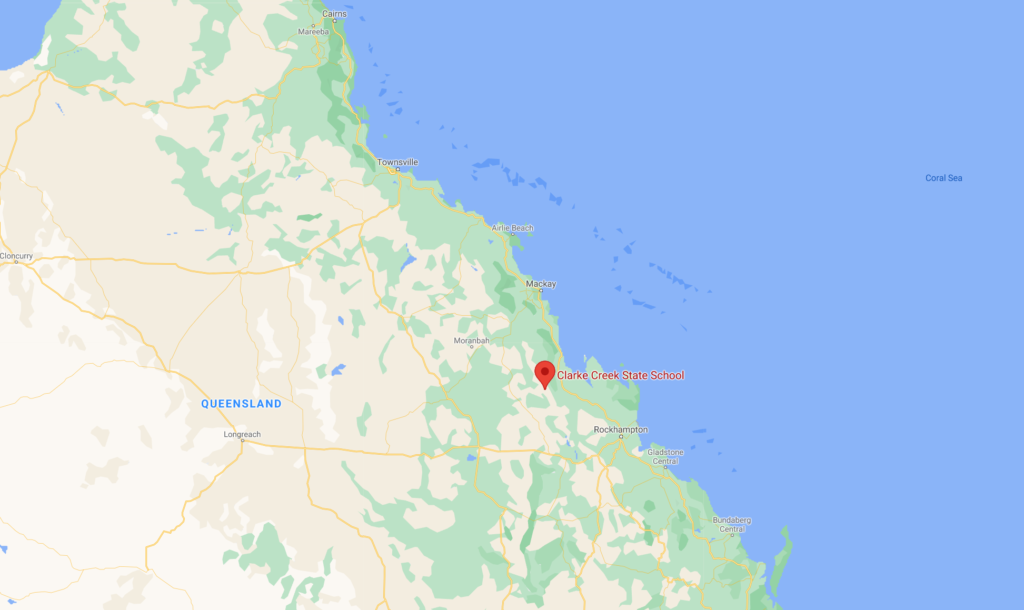
In the remote locality of Clarke Creek in Queensland’s Isaac Region, a community of 320 people have been doing it tough in recent years. In March 2017 Tropical Cyclone Debbie and flash flooding devastated the area, and then came the drought.
People from Clarke Creek mostly own or work on cattle stations, many run by extended and intergenerational family groups. School-aged children in the area were exposed to many impacts of Cyclone Debbie – from damage to community and family infrastructure, livestock and pet animal losses, to financial strain putting pressure on their families.
A problem-solving school
The saving grace of this community is the Clarke Creek State School (CCSS), which, in the absence of a township, serves as the community hub. It caters to the needs of 17 students from Kinder to Year 6, extends support to siblings, parents and extended families of those students, and provides a meeting place for all groups in the area, including the P&C Association.
The Clarke Creek P&C Association knew it was critical to support children through all this, and that school can help facilitate healing by providing the sense of normality that’s needed after a disaster. Since residents of Clarke Creek had to travel up to 230kms to access health and professional services, the P&C Association knew that, for help to be constructive, it would need to be brought into Clarke Creek.
The school had previously gained the services of a chaplain directly though the National Schools Chaplaincy Program, however the school could only afford one visit per fortnight without outside funding. By late 2018, it was clear that there was a need for ongoing disaster support for families. With so many pressures affecting the ability to fundraise locally in the tiny community, the P&C Association applied to FRRR’s In a Good Place program. A grant of $10,000 funded by CCI Giving essentially doubled the chaplain’s visits to weekly from July 2019 until March 2020, when the Department of Education funding applications opened.
Chaplaincy support proves vital
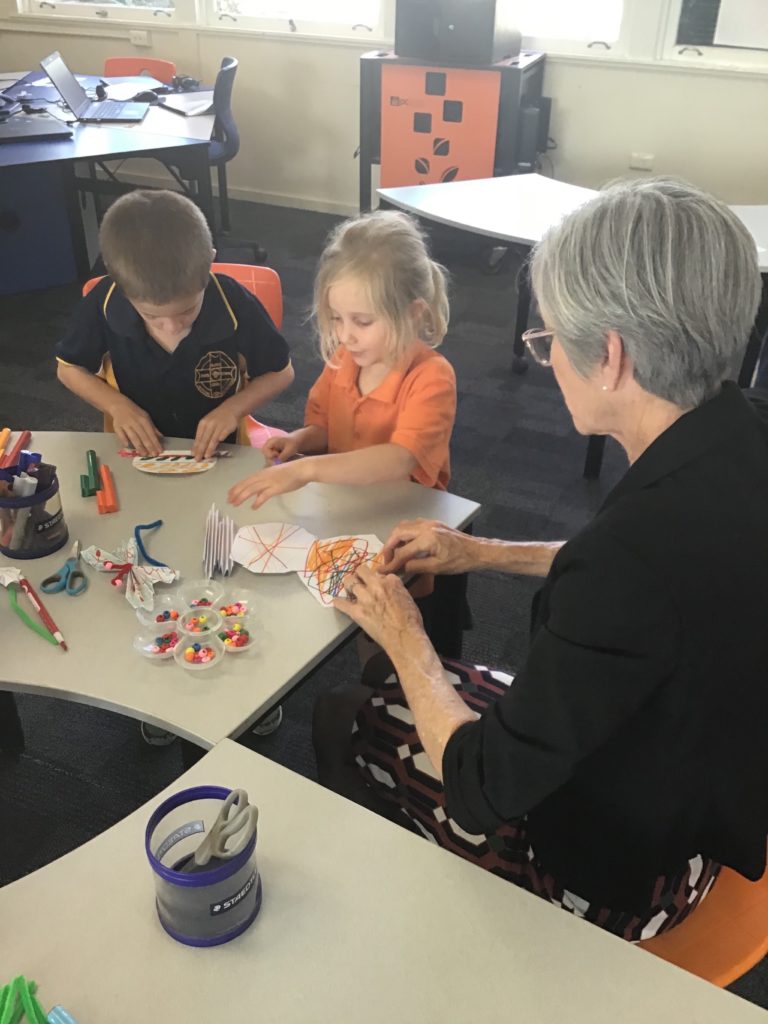
In small schools, the school chaplain is often the welfare provider, and plays a key part of the school support team.
The chaplaincy support at CCSS started shortly after the school and community were devastated by cyclone Debbie, and proved to be highly valuable to students, staff and the broader community, in their ongoing recovery and general mental health and wellbeing. The chaplain attends the school one day each week, working with the children in groups and one on one sessions. She provides emotional support and fosters leadership and kindness in the classroom, playground, and at school events.
“Chappy’, as she is fondly nicknamed, has been imparting those crucial life skills to the children and helping them to deal with the many challenges unique to living in a remote community in an isolated context.
It was a crucial time to bring in extra support, and the P&C Association don’t make light of the importance of Chappy’s role. Throughout COVID-19, the chaplain helped children deal with changes to their learning and became a central figure of stability for parents and the wider community.
The CCSS Principal notes how important the chaplain is in helping students transition through their education.
“I think the older students love the way she makes sure they all know that they have a voice and that someone cares enough to make the time to listen. She helped prepare older students for boarding school, and taught younger ones to be engaged in learning and practising kindness.”
The chaplain attends school and community events, and works with other schools in the cluster, thus creating support networks in the broader communities and creating an inclusive atmosphere and strengthened sense of community. But it’s the flow-on effects from the children’s gains that have the greatest power, as described in the final report:
“Our greatest achievement has been just stabilising our community. Oddly, this was really achieved through the children coming home from school with this positive energy and outlook from their time with Chappy, rather than working direct with parents and community. When the parents knew the kids would be ok and had someone strong to lean on, it was like a weight lifted and the school became the place of ‘normalcy and support’. Things picked up from there.
“In a small school and community, we have to stick together. Chappy has fostered this sense of belonging and caring in our children and it emanates from there.”
Located 1,000 km from Brisbane in the southwest of Queensland, Eromanga has a big claim to fame. The rural town, hidden deep in the outback of Australia, may only be 119 residents – but the biggest by far is Cooper, a 30 metre long and 6.5 metre high Dinosaur.
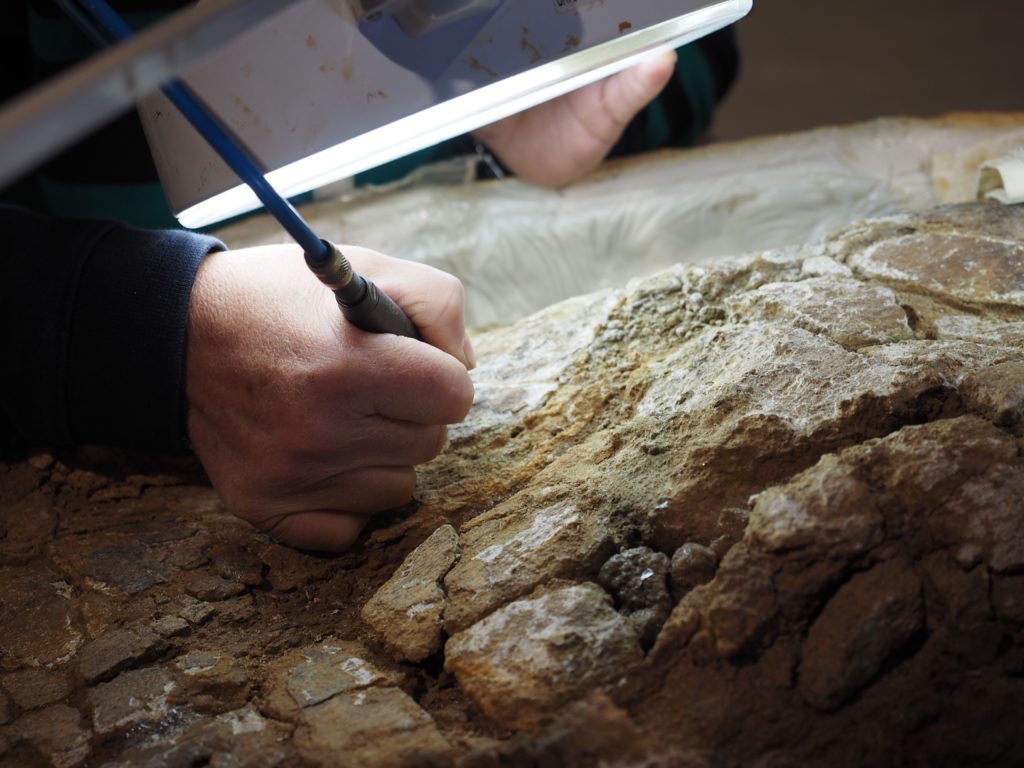
Eromanga is Australia’s furthest town from the ocean, and was drought declared for 13 years out of the 18 years to 2018. The many challenges brought on by a long drought, paired with the limited access to the town, have made increasing tourism a top priority for the local community.
Until recently, tourism around the region was almost non-existent, until the first dinosaur genus was found in 2004. From then, the Outback Gondwana Foundation founded the Eromanga Natural History Museum (ENHM), and since 2008 has been collecting and processing the fossils found in the area for locals, scientists and tourists to view.
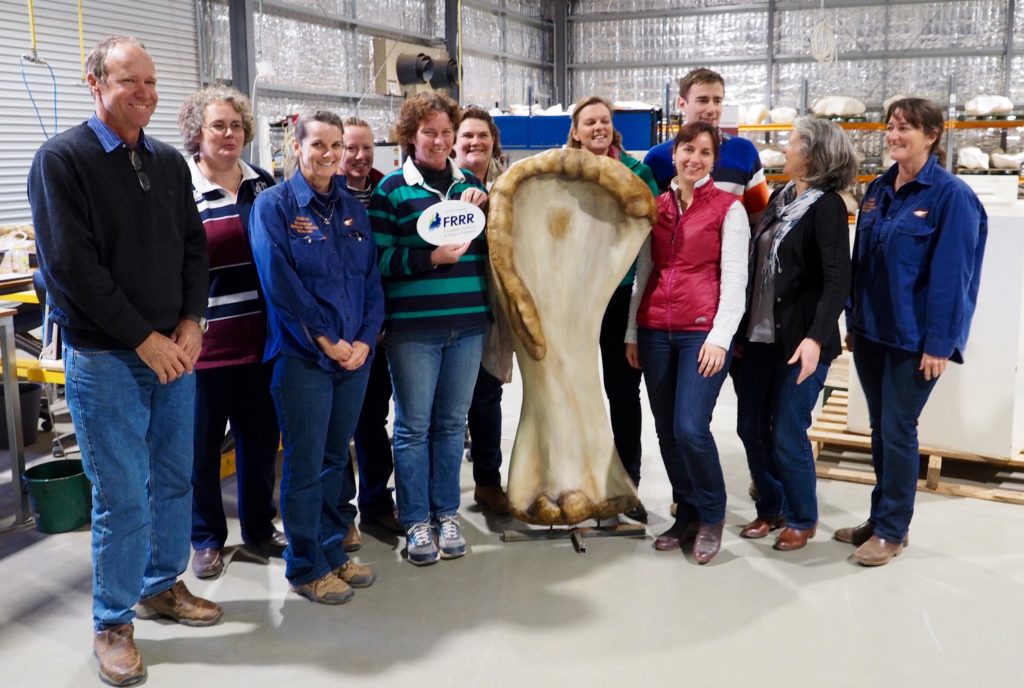
The museum features fossils that have been preserved for more than 95 million years, however being located in a remote area has meant little foot traffic. Visitors faced long travel times to and from the museum, making day trips nearly impossible.
To overcome this obstacle, the Museum opened their own on-site accommodation, bringing more business to the area by allowing visitors to stay longer. Cooper’s Country Lodge offers four-star rooms, and thanks to a recent grant from FRRR, now has new kitchen and laundry facilities for their guests to enjoy.
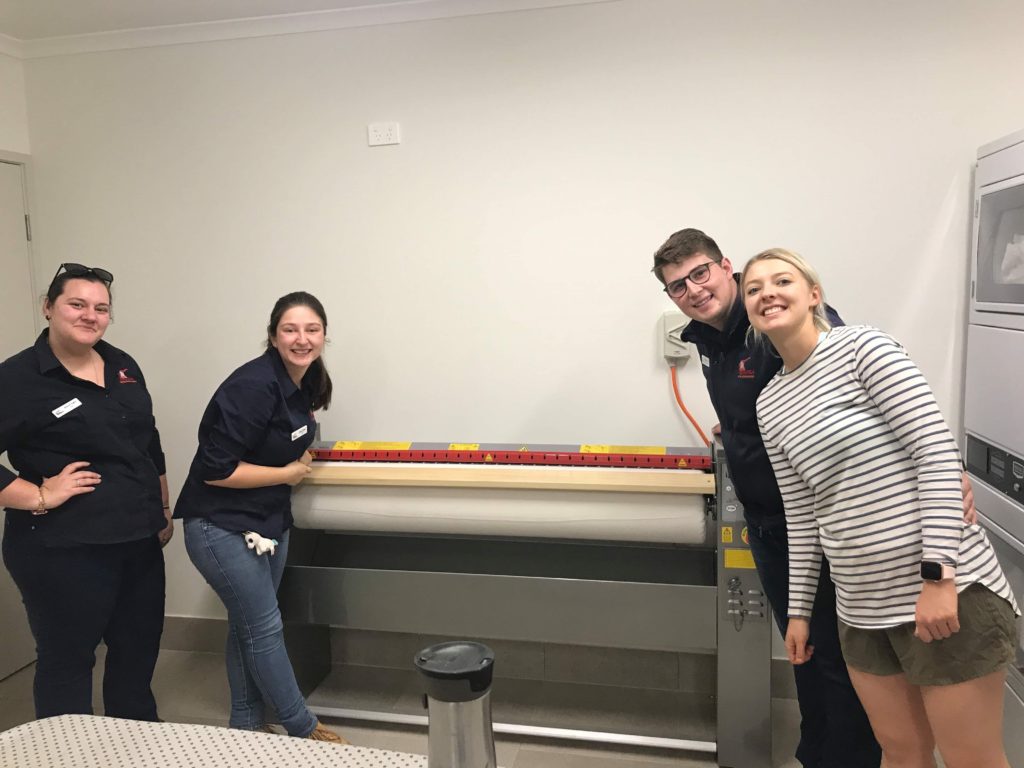
The team at ENHM received a $20,000 grant through FRRR’s Tackling Tough Times Together program, funded by Australia Post, which allowed them to purchase equipment and fit out their onsite kitchen, laundry and support services. There is also a commercial kitchen featuring a microwave, griddle, deep fryer and new cookware, together with dining furniture and outdoor table & chairs.
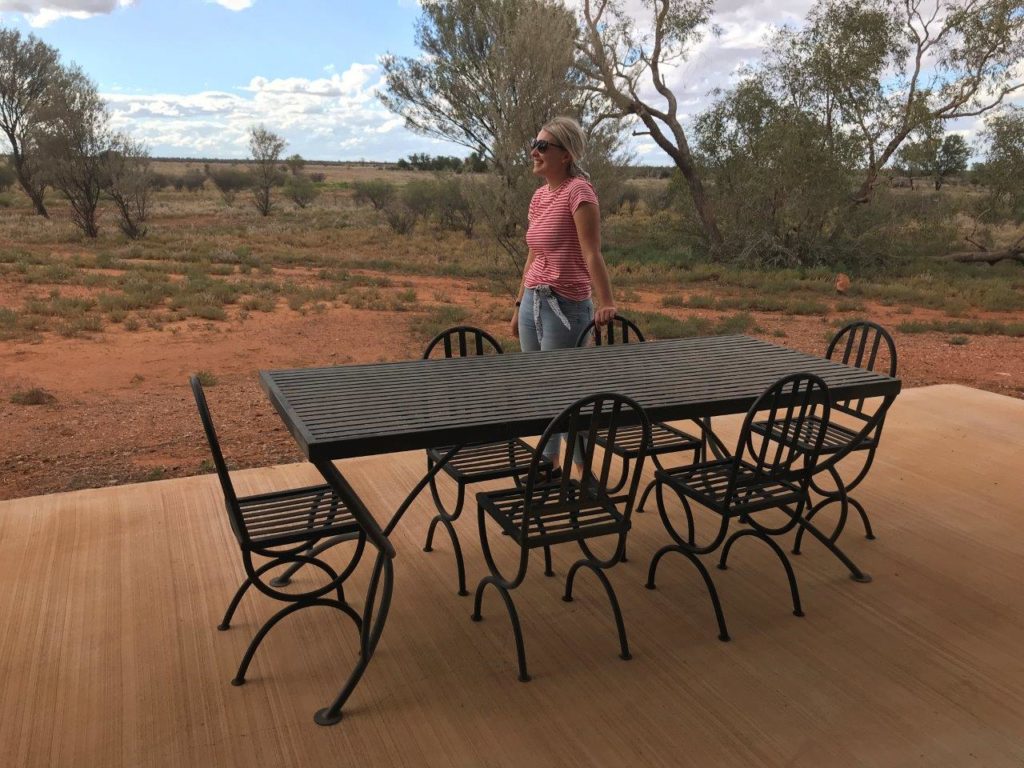
The investment is already paying off. Despite the lockdowns and travel restrictions throughout the COVID-19 pandemic, the popularity of the ENHM and Cooper’s Country Lodge has only increased, as Queenslanders have spent their holidays travelling in their own backyard. In 2020, the ENHM received the TripAdvisor Travellers Choice Award, meaning the Museum is in the top 10% of attractions worldwide.
The Taromeo Rural Fire Brigade (TRFB) are a busy bunch. While you could be forgiven for thinking their remit was fire preparedness and firefighting, this group of volunteers actually take on a significant number of emergency service preparedness and response activities, as well as community education and outreach. After an increase in fires in the area, they were in need of more trained community volunteers, particularly young people and women, to support their efforts.
Alongside the challenge of more fires in the area, the TRFB were facing challenges with engaging with younger and older members of the community. They were concerned about their understanding of how bushfires can spread and their preparedness and resilience levels if a fire was to occur.
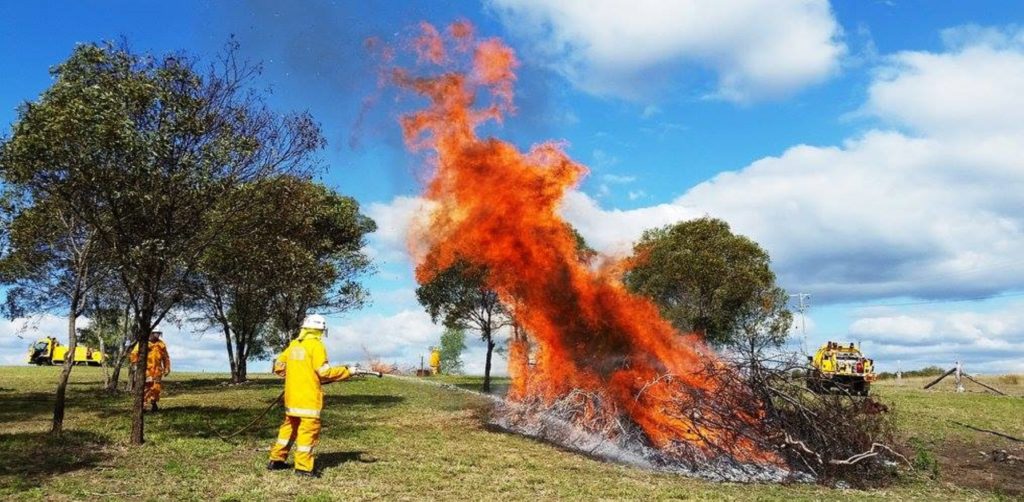
A grant of $4,170, donated by the David MacTaggart Foundation meant that the TRFB were able to create the ‘Don’t Burn the Butt’ community engagement campaign. The TRFB worked with other community organisations in the delivery of ‘Don’t Burn the Butt’ including South Burnett Regional Council, Blackbutt Benarkin Aged Care, SES, Qld Police Service, Blackbutt Medical Centre, Blackbutt Festival and Blackbutt Benarkin Aged Care Association.
The TRFB conducted a door to door engagement campaign, with volunteers knocking on every door in the community to talk about the importance of being prepared for bushfire season, and the benefits of becoming a volunteer. They also ran workshops for community members who were interested in becoming volunteers, to teach them the skills they would need, and were able to purchase equipment that they needed to ensure that they could respond effectively to any fires that occurred.
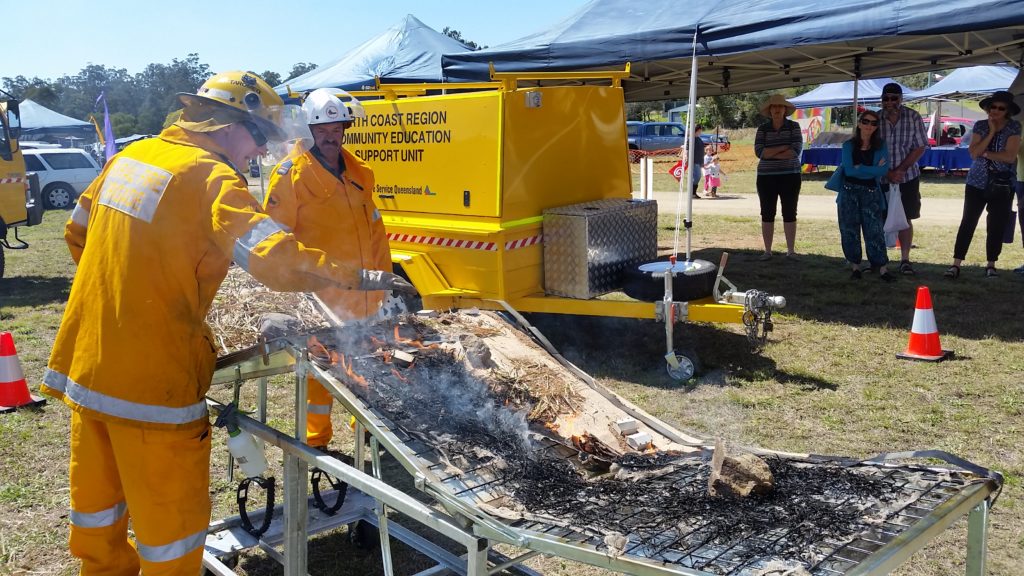
Les Lane, First Officer of TRFB, told FRRR; “The delivery of a Community Engagement Strategy was a very positive outcome for this project. We now have an additional 4 members of the brigade with truck licenses to respond to fires. This has already proven to be of benefit to the community and the brigade by enabling more team members to be active fire fighters when needed.”
Now, more community members are equipped with the knowledge and support they need to keep themselves and their families safe for this bushfire season, and many more to come.
Freestone is a small, farming community located west of Brisbane, in Queensland. The town has been hard hit by ongoing drought, job losses and declining mental health and wellbeing among community members.
In 2015, the Freestone Memorial Hall began holding ‘Friday friendlies’ to bring community members together for social catch-ups. These events were particularly important as the drought worsened in 2018, with the economy slowing down due to layoffs. As times got tougher, the attendance at the Friday Friendlies increased.
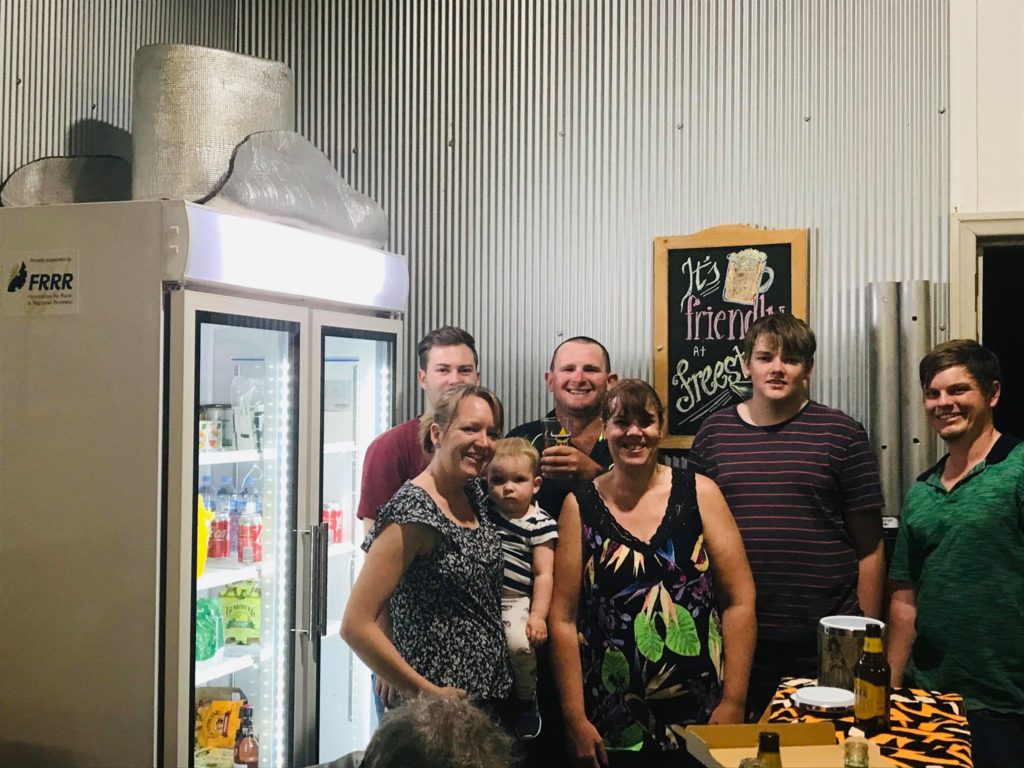
Because of the importance of this social event, the Freestone Memorial Hall wanted to ensure the space was safe, could host the growing number of visitors, and had the updated facilities needed to ensure everyone could come together for a good time.
Freestone Memorial Hall was awarded a $10,000 grant, funded by the Australian Government, and administered by FRRR as part of the Tackling Tough Times Together Grant Program, to upgrade their facilities, install a data projector and integrated PA system and undergo renovations to fix an unsafe floor.
“Since installations and repairs have been completed, we have run five Friday Friendlies with increasing numbers at each Friendly. We are now averaging 50 people per night with a broad cross section of the community coming together to share their experiences of the month. This has proved particularly important as the drought continues,” Simon Goddard, a volunteer committee member for the Hall, told FRRR.
“We are even getting people back to the Friday Friendlies as they hear of improved facilities and increasing numbers. It is becoming self-perpetuating and has a very promising future.”
The new projector has been a popular addition for many locals, who enjoy getting together to watch live sports and tournaments.
The grant also allowed the community group to purchase a fridge, which not only keeps their drinks cold for events, but generates some income for the Hall. This modest but sustainable income makes it possible for the community to host bigger and better events together. So far, the Friday Friendlies continues to be a success for the Freestone community, with many looking forward to attending the gathering every week.

